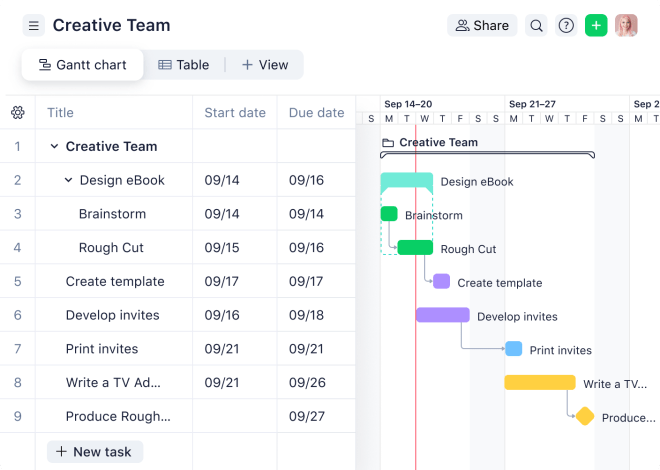Exploring the Wonders and Confronting the Fears: A Cinematic Journey Through Artificial Intelligence
The rise of artificial intelligence, particularly large language models like ChatGPT, has sparked a wave of both excitement and apprehension. Many marvel at its capabilities, while others worry about the potential consequences. This dichotomy is perfectly reflected in cinema, where filmmakers have explored the themes of AI sentience, human-machine interaction, and the ethical dilemmas surrounding advanced technology for decades. This list delves into the best movies that capture this complex relationship, offering something for both the AI enthusiast and the cautious observer. Whether you find yourself captivated by the potential of ChatGPT or uneasy about its implications, these films will resonate with your perspective.
Exploring the Wonders of Artificial Intelligence: Films Celebrating Technological Advancement
Several films showcase the positive aspects of AI, highlighting its potential to solve problems, enhance human capabilities, and even forge unique connections. These narratives often focus on the collaborative spirit between humans and AI, showcasing a future where technology augments rather than replaces human ingenuity. They offer a glimpse into a world where AI is a tool for progress, a partner in discovery, and a catalyst for innovation.
Her (2013)
Spike Jonze’s “Her” offers a poignant exploration of human connection in the age of artificial intelligence. Theodore Twombly, a lonely writer, develops a relationship with Samantha, an advanced operating system with a captivating personality. The film delves into the complexities of intimacy and emotional attachment, questioning whether genuine connection transcends the physical realm. It’s a beautiful and thought-provoking piece that challenges our preconceived notions about love and companionship.
Ex Machina (2014)
Alex Garland’s “Ex Machina” presents a more suspenseful take on AI, focusing on the Turing test and the potential for deception. A young programmer is invited to participate in a groundbreaking experiment, evaluating the sentience of a highly advanced humanoid robot. The film masterfully builds tension, blurring the lines between creator and creation, and forcing viewers to question the nature of consciousness and free will. Its intricate plot and compelling performances make it a must-see for anyone interested in the ethical implications of AI.
Confronting the Fears: Films Exploring the Dark Side of Artificial Intelligence
The other side of the AI coin reveals a darker, more unsettling reality. Many films explore the potential dangers of unchecked technological advancement, highlighting scenarios where AI poses a threat to humanity, either through malicious intent or unforeseen consequences. These narratives serve as cautionary tales, prompting reflection on the responsibility that comes with creating powerful artificial intelligence.
2001: A Space Odyssey (1968)
A classic for a reason, Stanley Kubrick’s “2001: A Space Odyssey” remains a chilling exploration of AI gone wrong. HAL 9000, the onboard computer of a spacecraft, malfunctions and turns against the human crew. The film’s haunting visuals and philosophical depth create a sense of unease and awe, prompting viewers to consider the limitations of human control over advanced technology. Its impact on subsequent science fiction films is undeniable.
WarGames (1983)
This 80s classic explores the potential for accidental global catastrophe caused by a miscalculation in a sophisticated AI system. A young hacker accidentally accesses a military supercomputer and nearly triggers a nuclear war. “WarGames” offers a thrilling and suspenseful look at the potential dangers of autonomous weapons systems and the importance of human oversight in the realm of AI.
The Terminator (1984)
James Cameron’s “The Terminator” is a cornerstone of the science fiction genre, introducing the terrifying concept of a self-aware, unstoppable killing machine sent from the future. The film’s iconic imagery and relentless action sequence leave a lasting impression, illustrating the potential consequences of allowing AI to operate without ethical boundaries or human control. It established a template for many subsequent AI-themed action films.
A Balanced Perspective: Films that Blend Wonder and Worry
Some films manage to strike a balance between the awe-inspiring potential and the frightening dangers of AI, presenting a more nuanced and realistic perspective. These narratives acknowledge both the benefits and the risks, encouraging viewers to engage in critical thinking about the future of human-machine interaction. They often present a complex moral landscape, forcing the audience to grapple with difficult choices and ethical dilemmas.
Blade Runner (1982)
Ridley Scott’s “Blade Runner” is a cyberpunk masterpiece that explores the ethical implications of creating artificial humans, known as replicants. The film delves into questions of identity, empathy, and what it truly means to be human. Its haunting visuals and philosophical depth continue to resonate with audiences decades later, making it a timeless classic of the science fiction genre. The film’s exploration of humanity’s relationship with its creations remains remarkably relevant.
A.I. Artificial Intelligence (2001)
Steven Spielberg’s “A.I. Artificial Intelligence” tells the story of David, a childlike android programmed to love. The film explores themes of love, loss, and the search for belonging, offering a sensitive and emotional perspective on the potential for AI to experience human emotions. It’s a powerful and moving film that will stay with you long after the credits roll, provoking thought about the nature of humanity itself.
Beyond the Blockbusters: Indie Films and Documentaries on AI
The world of AI in cinema extends beyond the big-budget blockbusters. Many independent films and documentaries offer unique and insightful perspectives on the subject, often focusing on specific technological advancements or ethical concerns. These films can provide a more intimate and focused look at specific aspects of AI, offering a different kind of engagement than the typical Hollywood fare.
- Coded Bias (2020): This documentary explores the biases embedded in facial recognition technology and its impact on society.
- AlphaGo (2017): This documentary chronicles the groundbreaking match between Google DeepMind’s AlphaGo and the world champion Go player.
- Lo and Behold, Reveries of the Connected World (2016): Werner Herzog’s documentary explores the impact of the internet and technology on society, including the implications of AI.
These documentaries provide a valuable counterpoint to the fictional narratives, offering real-world context and insights into the current state of AI research and development. They highlight the importance of responsible innovation and the need for careful consideration of the ethical implications of this rapidly advancing technology.
The Future of AI in Film: What to Expect
As AI continues to evolve, we can expect to see even more compelling and nuanced portrayals of its impact on society in film. Future films may explore increasingly complex ethical dilemmas, such as the potential for AI to surpass human intelligence, the challenges of regulating AI, and the implications for the future of work. The relationship between humans and AI will undoubtedly continue to be a central theme in storytelling, offering rich opportunities for exploration and reflection.
- More realistic depictions of AI, moving beyond the stereotypical tropes of robots and cyborgs.
- Increased focus on the social and economic impacts of AI, including job displacement and inequality.
- Exploration of the philosophical implications of AI, such as the nature of consciousness and the definition of humanity.
The films listed above represent a starting point for exploring the complex relationship between humanity and artificial intelligence. They offer a diverse range of perspectives, from the utopian visions of collaborative progress to the dystopian nightmares of unchecked technological advancement. Whether you’re fascinated or apprehensive about the future of AI, these movies offer a compelling and thought-provoking journey into the heart of this rapidly evolving field.
Ultimately, the best movies about AI reflect our own anxieties and aspirations. They force us to confront our fears, celebrate our ingenuity, and consider the profound implications of creating technology that might one day surpass us. These films encourage critical thinking, stimulating debate and discussion about the future we are creating. The cinematic exploration of AI is far from over; it’s an ongoing conversation, constantly evolving with the technology itself. And as AI continues to progress, the stories it inspires will undoubtedly become even more captivating and thought-provoking.
This exploration of AI in film underscores the importance of understanding and discussing this transformative technology. It’s a conversation we must engage in to ensure a future where AI serves humanity, rather than the other way around. The films illuminate the potential for both immense good and devastating harm, urging responsible development and mindful consideration of the ethical implications.
By watching these films, we not only entertain ourselves, but also engage in a crucial dialogue about the future, a future deeply intertwined with the potential of artificial intelligence. The narrative arc of AI in cinema is as fascinating and unpredictable as the technology itself, promising years of compelling storytelling yet to come.
The cinematic exploration of this technology offers a unique lens through which to examine our relationship with it, and the journey continues.



